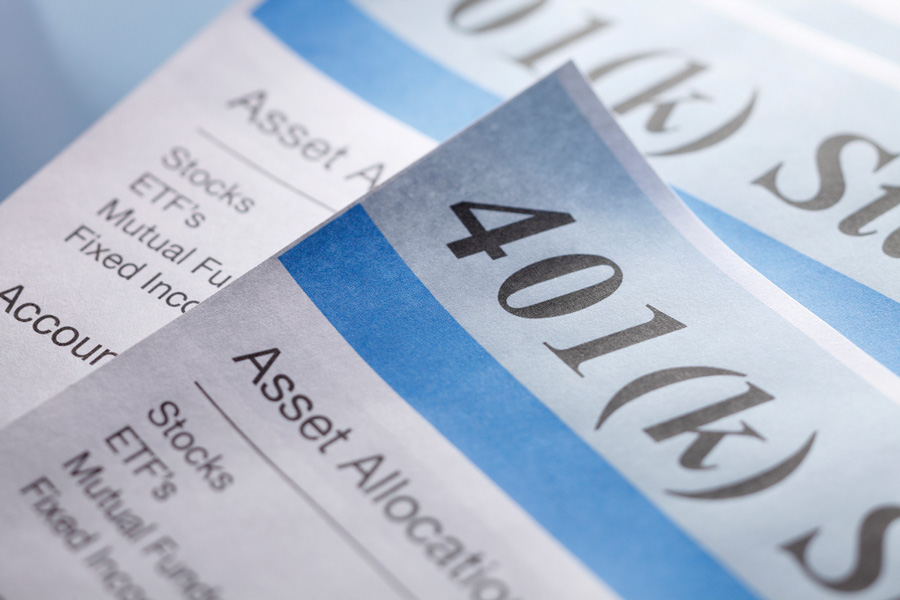

Employers have started cutting back on 401(k) benefits amid the COVID-19 outbreak, in many cases stopping their contributions to employees’ accounts in order to reduce costs.
Small businesses have suffered immensely as cities and states have implemented shelter-in-place orders for millions of workers. Unemployment claims hit a record 3.3 million last week as companies that were forced to close down shed staff.
Many businesses are doing whatever they can to stay afloat, retirement plan advisers said.
“We’ve had seven companies in the last 24 hours make plan design changes,” said Jason Chepenik, managing partner of Chepenik Financial. “They’re being very nimble. They’re furloughing employees rather than terminating them.”
That means that workers can remain eligible for health benefits, though they cannot take a full distribution from their 401(k) plan, as a furlough, unlike termination, is not a qualifying event, Chepenik said. However, many workers will likely pull money early from their retirement accounts under provisions in a congressional relief package that will waive the 10% penalty for people affected by the virus and allow higher borrowing amounts for people who take out 401(k) loans.
Employers “are making all kinds of changes to their plans so they can be economically viable,” Chepenik said.
Plans ranging from $5 million to $50 million have made changes such as pulling back on voluntary or matching contributions to their workers’ accounts, he noted. In the coming days and weeks, “my guess is we’ll have more” companies making plan changes, he said.
Big companies, including Amtrak, Sabre Corp. and Norwegian Cruise Lines, have announced cuts in their 401(k) contributions, a spokesperson for Alight Solutions noted, citing company announcements and media reports.
The 2008 financial crisis also prompted companies to pull back on 401(k) contributions. Between 2007 and 2009, about 10% of 401(k) sponsors temporarily stopped making matching contributions, and another 10% stopped making profit-sharing contributions or nonmatching employer contributions, according to Alight.
Currently, the most common matching formula that employers use in their plans is a dollar-for-dollar match on up to 6% of an employee’s pay, according to Alight.
Amid the recent COVID-19 crisis, Chepenik said his firm has been holding emergency meeting with clients.
“The advisers are working overtime,” he said. “Employees are concerned. They’re taking loans they’re asking for distributions.”
Being available for clients has been a priority, as many businesses are struggling to manage their costs and figure out how to survive, said Jamie Greenleaf, lead adviser and principal at Cafaro Greenleaf.
“I don’t know how many of our organizations are going to come through this,” Greenleaf said. “We have smaller organizations that this [market] basically will destroy their current business structure. What they look like after this time, a retirement plan might not be in their cards.”
That has meant that plan sales have virtually stopped. Plans are not switching record keepers, hiring new advisers or opting for different investment options, Greenleaf said.
“For anybody to think we’ll be able to prospect for new business at this time, I don’t think it is possible,” she said. “Businesses [are] in survival mode."
Retirement plan sales would be slowing given the market volatility alone, but the pandemic has added further complications, said Scott Buffington, CEO of 401kplans.com, which issues proposals and performs due diligence for plan advisers.
“In this kind of environment where everybody’s [working from] home … you’re not having finals presentations, you’re not speaking to a committee about the value you offer as a 401(k) provider,” Buffington said. “There’s no doubt that plan sales have slowed down.”
Aside from responding to client’s concerns, plan advisers have been spending time during the pandemic in training sessions to learn more about products they hadn’t considered in the past, he said.
The spare time gives retirement plan advisers a chance to put in due diligence and work on proposals for plan changes that can be made after the pandemic subsides, Buffington said. “Maybe this frees them up to check the box and get some of those things done.”

A new proposal could end the ban on promoting client reviews in states like California and Connecticut, giving state-registered advisors a level playing field with their SEC-registered peers.

Morningstar research data show improved retirement trajectories for self-directors and allocators placed in managed accounts.

Some in the industry say that more UBS financial advisors this year will be heading for the exits.

The Wall Street giant has blasted data middlemen as digital freeloaders, but tech firms and consumer advocates are pushing back.

Research reveals a 4% year-on-year increase in expenses that one in five Americans, including one-quarter of Gen Xers, say they have not planned for.
Orion's Tom Wilson on delivering coordinated, high-touch service in a world where returns alone no longer set you apart.
Barely a decade old, registered index-linked annuities have quickly surged in popularity, thanks to their unique blend of protection and growth potential—an appealing option for investors looking to chart a steadier course through today's choppy market waters, says Myles Lambert, Brighthouse Financial.
